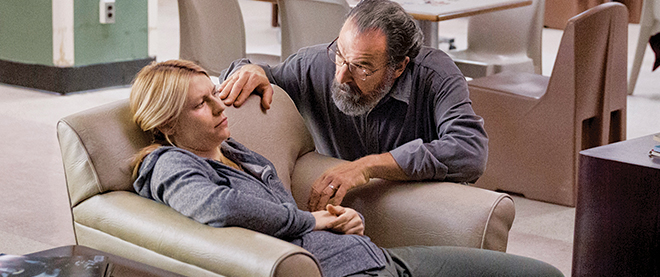Homeland and the sophomore jinx
Why some shows fizzle out in their second seasons
Kent Smith / Showtime
Share

Remember when Homeland was one of the most acclaimed shows on television? That was a very long time ago, almost two years. The spy thriller’s first season received almost unanimous rave reviews and swept the Emmys; now, in only its third season, it’s getting reviews like Vulture’s headline, “You’re killing me, Homeland.” The backlash began in the second season and hasn’t let up: “For me Homeland started going off the rails a few episodes into the second season and then the worry just began to increase by an order of magnitude as that season wore on,” says Hollywood Reporter TV critic Tim Goodman. It sometimes seems that as hard as it is to make a show that works at first, it’s even harder to make one that works for more than one year.
That’s because Homeland is not the first show to suffer a sophomore jinx after a spectacular first season. Recent backlash victims include Heroes, a massive hit and cultural phenomenon for exactly one 22-episode season and a tremendous disappointment afterward; the prime-time soap Revenge, whose second season brought a massive ratings drop and the departure of its creator; and Glee, which lost much of its first-season audience long before the death of star Cory Monteith. Cable shows aren’t immune either; Damages started as a cultural phenomenon and ended up being moved to an obscure network. Even Downton Abbey has never matched the glowing reviews it got for its first season.
Why do some shows fizzle out in their second seasons? Sitcom writer David Misch says a big reason is that the premise inevitably gets violated, and he knows from experience: he was a writer on Robin Williams’s Mork & Mindy, which had one season as a hit and three more as a disappointment. That show’s popularity depended on Williams’s character being naive: “We used to say the day he learns about sex is the day the show ends.” But Williams wanted “to change the character to someone who was making knowing commentary on society,” and it changed the tone of the show. Similarly, Homeland started as a taut story about counterterrorism, but later seasons have put more emphasis on romance arcs, taking away what many saw as the original reason for watching.
Melodramas like Homeland and Downton Abbey have an additional problem because modern viewers have come to expect more shocking plot twists and status quo shakeups than in shows of the past. “You’ve got to be constantly shocking the audience, bigger each time, and that’s a hell of a challenge,” Misch says. The revelations in the new season of Homeland—like the news that Carrie (Claire Danes) was faking her problems in previous episodes—are what Canadian TV scholar Myles McNutt calls “absurd actions existing solely to service character.”
Still, some shows manage to avoid the sophomore curse. ABC’s hit Scandal managed to defy gravity by becoming crazier every year, celebrating how contrived it has become. Other shows have simply begun challenging the whole idea of a continuing story. American Horror Story improved in its second season by starting over with a new plot and characters. And in its upcoming venture into TV with Netflix, Marvel Studios is also avoiding the curse of multiple seasons by instead creating four different 13-episode seasons about four different superheroes, followed by a fifth season where they come together to fight crime. These new methods of production—limited-run series or creative ways of organizing seasons—may help future shows avoid the burnout that comes with trying to stretch out a premise.
That doesn’t help a traditionally organized show like Homeland. And once a show loses critics, it almost never gets them back. “I actually haven’t disliked this season that much,” says Cory Barker, a writer for TV.com, but “it was facing an uphill battle” after season two. The good news for Homeland is that at least critics haven’t changed their minds about the first season: “I still believe that season one as a whole is truly great,” Goodman says. “A fluke now, given what’s come since, but still a great season. It really should have ended there, but that’s obviously not how television works in this country.”